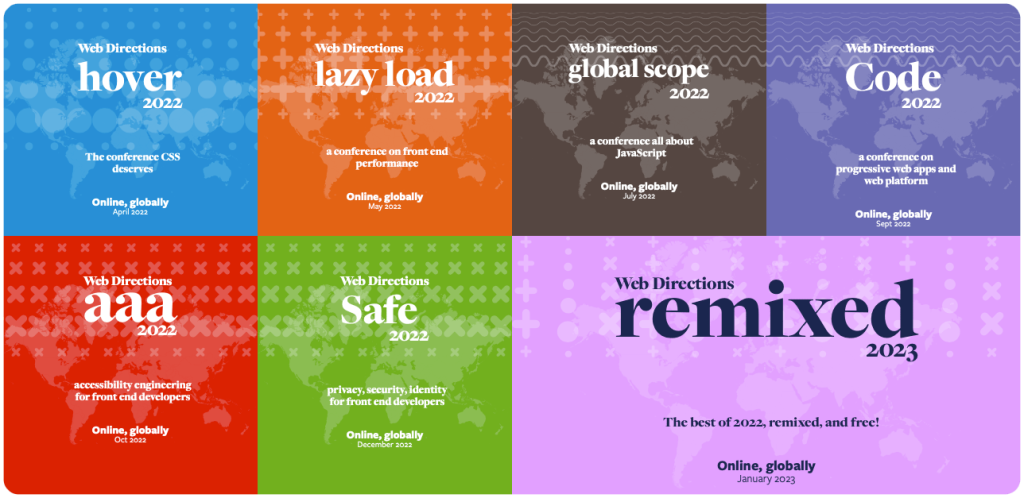The husk of true faith
I’m writing this on Good Friday, considered by many of the Christian faith to be perhaps the most important day in the Christian calendar, and in Australia, a largely secular country, so sacred that you cannot buy take away alcohol on this and only one other day in the year (that being Christmas Day). Pubs and bars are though open (though that’s only happened in the last couple of decades).
Which bring to mind a word I find very powerful, ritual, and a chapter of the Tao Te Ching (an ancient book, central to the Daoist religion, though much more philosophical than religious in nature).
Translation, particularly of texts from 600BCE is of course very challenging, and the deliberately enigmatic nature of this text makes it even more so–you can find many translations of the Tao Te Ching that differ significantly, but the Stephen Mitchell translation is commonly cited, and his rendering of part of Chapter 38 goes
When the Tao is lost, there is goodness.
Tao Te Ching, Stephen Mitchell
When goodness is lost, there is morality.
When morality is lost, there is ritual.
Ritual is the husk of true faith
So what’s a quote from a 2500 year old religious text doing in your newsletter ostensibly about (but is it though?) web technology, design, and culture?
A quick interpretation of this quote. ‘Tao” is conventionally translated as ‘the way’, which might be thought of as being the essence of the universe. In an ideal world, we intuit the way, which brings wisdom, peace, calm–personal and societal. But when that is lost, we have goodness–sometimes translated as ‘faith’, an ethical understanding of the world. The distinction I see is goodness is more deliberative and an act of the intellect, rather than spontaneous and emergent as it is when one has an understanding of the way.
Over time, this deliberative, thoughtful, ethical approach becomes regulated, into morality–where ethics is an active engagement with the question ‘what is it to be good’, morality is the adherence to an external mandated code. ‘Thou shalt not’ familiar from the Ten Commandments common to Christianity, Judaism and Islam.
And long after that, all that is left is ritual–practices performed reflexively, without understanding. The husk of true faith.
But still, John, not sure of the relevance here.
I actually think this idea of ritual is a powerful metaphor for our own individual personal and professional practices, the approaches and philosophies of the places we work, and indeed practices and beliefs at a professional level. Over time the deeply thought out approaches we have developed to addressing a challenge, solving a problem, become understood, then codified, then ultimately simply reflexive.
Perhaps in time we no longer even know why we do something the way we do.
A tremendous example of this is found in a fantastic essay from Hillel Wayne about a widespread industry practice that no one actually knows why we do it.
If you’re a developer, at an interview sometime in your career, you’ve very likely been asked questions about linked lists. These were a big deal when I studied computer science in the 1980s. I don’t think I’ve had cause to ever use them in developing for the Web. So why are they so prominent as interview questions?
Hillel tries observes that such questions are now what I would term rituals–
So why do interviewers like to ask linked list questions? If you ask people, you usually get one of two answers:
1. “It tests CS fundamentals.”
2, “It tests reasoning through a new problem.”
These answers are contradictory: if you want to know if someone knows CS fundamentals, you don’t want to give them a problem they can trick their way through, and if you want to test reasoning ability, you don’t want to give a problem that they’ve already seen in CS. Two contradictory answers tells me there’s some history involved. My guess is that originally people asked LL questions for a very good reason, and then over time forgot the reason and came up with post-hoc justifications
WHY DO INTERVIEWERS ASK LINKED LIST QUESTIONS?
Hillel attempts to trace back the history of the use of questions about linked lists and understand what they were originally attempting to achieve. It’s part history, part detective story, and wholly readable.
Dark Patterns
Speaking of ethics and morality, how about them dark patterns?–”tricks used in websites and apps that make you do things that you didn’t mean to, like buying or signing up for something”.
In a way dark patterns are a kind of ritual–ritualising problematic behaviour makes it much easier for people to do it. We don’t have to think about it, we just follow the pattern.
For designers and developers, resisting the use of these patterns is challenging, since implementing them is often not a choice we make, it’s one imposed by whoever makes tactical decisions, and options to resist these directives can be limited.
The state of California, essentially one of the largest countries in the world in terms of economic impact, if not in political reality, has very strong consumer protection laws, that have recently been updated (excellent coverage by the Verge I’m taking some these quotes from) to “ensure that consumers will not be confused or misled when seeking to exercise their data privacy rights” (recent changes to the law provided much greater data and privacy protection but “the state government is evidently worried that these options will be buried under byzantine menus”).
In essence, the State of California is outlawing dark patterns [PDF of regulations] that have “the substantial effect of subverting or impairing a consumer’s choice to opt-out”.
The explosion of the Venture Capital backed commercial Web rewarded largely unregulated experimentation in terms of business models and practices. Indeed many of the most ‘innovative’ companies engaged in what has been called ‘regulatory arbitrage’–where they weren’t engaging in straight up illegal behaviour–exploiting gaps in the reach of regulation, or the inability of regulators to respond quickly to new practices, fuelled by huge VC investment saw the rapid growth of companies exploiting this situation leading to the collapse of workers rights, drastic infringements of user’s privacy, and many other unforeseen ‘negative externalities’.
Legislatures, and regulators around the world, even where the intention and capability existed to address the impact of these ‘innovations’ were at best slow to act to address the emergent negative consequences.
The tide seems to be turning, at least in Europe, and some US states like California and New York, where legislators are attempting to redress these externalities, and some of the worst excesses of these ‘innovations’. It’s often done poorly (we’ll perhaps visit the ridiculous recent Australian legislation regarding social media companies and the traditional news media another time) but for anyone who works in technology, this growing backlash is important to keep track of. This won’t be the last of the ways in which technology practices (around the use of AI and machine learning, but also of design practices and business models) are regulated.
Bonus Random Tip
(TW Mention of death by suicide)
Alan Turning is a personal hero of mine, and I don’t have many. It’s difficult to overstate his importance to mathematics, computing or indeed the existence of the modern world as it is, through his work in cryptography and cryptanalysis during the Second World War. Nor is it difficult to overstate the utterly appalling way he was treated in Britain, leading to his apparent death by suicide after having been found guilty of gross indecency (that is for having a homosexual relationship), and in order to avoid imprisonment, taking a course of hormones that severely impacted him physically.
Cyanide poisoning was found to be the cause of his death, with a half eaten apple found by by his side after his death. I only today learned that the apple itself was never tested for cyanide, and there are alternative theories as to his death, which is widely, and officially believed to have been by suicide.
I also learned today he was 41 when he died. His life, filled with such extraordinary achievements, simply feels much longer.
The British Government in recent years have sought (through considerable organised pressure and not without resistance) to make amends for the appalling treatment of the person who perhaps made the single greatest individual contribution to victory in the second world war through his cryptographic work and cryptanalysis. The British government in 2009 issued a formal apology to him, and he was pardoned in 2014 after a protracted campaign with considerable offical resistance. The pardon was ultimately generalised to all men convicted of gross indecency (essentially for being gay), and the law fittingly and movingly is referred to informally as Alan Turing Law.
Then last week the UK revealed the new £50 bank note will feature Alan Turing’s image.

In honour of this, GCHQ, ‘the intelligence and security organisation responsible for providing signals intelligence and information assurance to the government and armed forces of the United Kingdom’ for whom Turing worked at Bletchley Park in his code breaking efforts, are holding The Turning Challenge
a set of 12 puzzles, … put together by some of our intelligence staff, where problem solving and a diverse mix of minds are at the heart of our work to help protect the UK from increasingly complex threats.
The Turning Challenge
If you’re looking for a challenge over this weekend (and beyond) why not take a look?
In 2022 we have a whole series of events for Front End Developers
Across 2022 Web Directions is presenting our series of online conferences for front end designers and developers. Focussed deep dives, they go far beyond what you might expect from conference programs.
Priced individually from $195, or attend all 6, plus get access to our conference presentation platform Conffab for just $595, or $59 a month.
Great reading, every weekend.
We round up the best writing about the web and send it your way each Friday.

